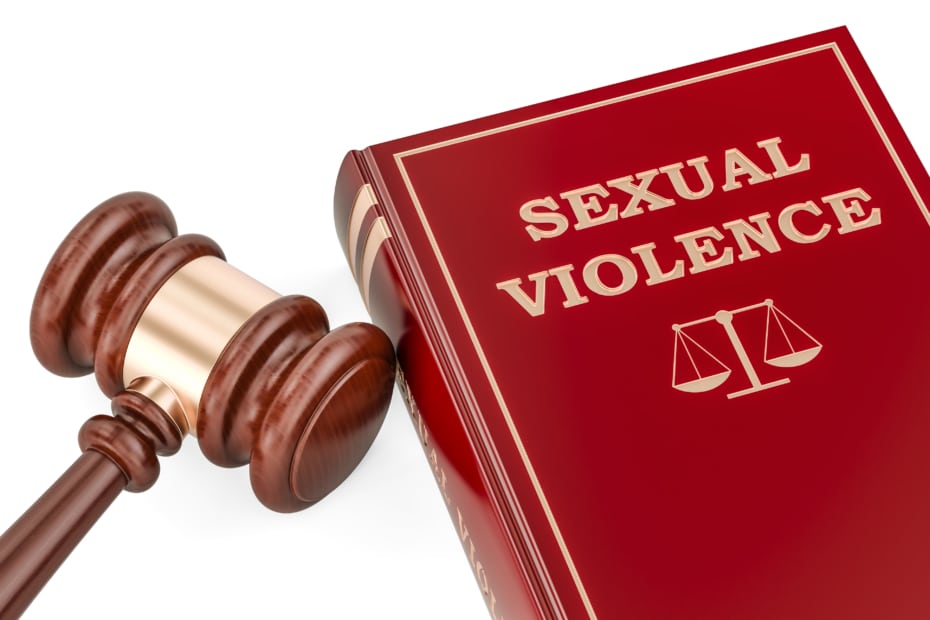Call Us At 519.672.5666
Insights & Articles
The Ontario Government Announces Increased Support for People who have Experienced Sexual Violence

As of May 1, 2021, the Province will provide up to four hours of independent legal advice for people who have experienced sexual violence. This is an expansion of the program that had previously been in place in Toronto, Ottawa, and Thunder Bay. This means that anyone in Ontario who has experienced sexual violence will have more options for support. The facts are sobering, but more support for survivors is welcome news.
Sexual Assault and Sexualized Violence Facts
Many people are victimized by sexual violence and abuse. Thirty per cent of women in Canada over age 15 have experienced sexual violence, and 8% of men over age 15 have experienced sexual violence [1]. The Supreme Court of Canada recognized sexual assault as a pervasive form of violence that is an assault upon human dignity, in R v Friesen, 2020 SCC 9. The Court stated that the emotional and psychological harm resulting from a sexual assault “may often be more pervasive and permanent in its effect than any physical harm”. Indeed, survivors of sexualized violence can suffer serious and long-lasting psychological harm as a result of that abuse. Sexualized violence can be a single incident of sexual assault, or it could be abuse happening over a period of time. It can be a contemporaneous incident, or historical in nature.
In 87% of incidents of sexual assault, where police were involved, the perpetrator is known to the victim, most commonly as a casual acquaintance, intimate partner, or family member. However self-reporting data indicates that 44% of sexual assaults were perpetrated by a stranger, or someone known by sight only. [2]
Coercion, threats and intimidation are commonly used to perpetuate sexual violence. 86% of sexual assaults involve only minor injuries or no injuries at all.[3] However, the damaging emotional trauma caused by sexual assault takes longer to heal than physical injuries. Every individual’s emotional reactions and behaviour after an incident vary. Neurobiological changes related to trauma can cause victim survivors to display “flat” affect or “strange” emotions after an assault. A victim survivor might be distressed and angry or quiet and calm. There is no “correct” reaction.
Individuals are often hesitant to report sexualized violence to police. Only about 8% of sexual assaults are reported to police.[4] Further, only 42% of all “founded” cases result in a perpetrator being charged.[5] More than half are never charged. Only 11% of founded cases of sexual assault lead to a conviction.[6]
Further, 1 in 5 people who experience sexual violence report feeling blamed for that violence, by friends and family of the perpetrator, or their own friends and family.[7]
Time to Heal
Survivors of sexual assault and sexualized violence have options on their journey through empowerment and healing. A civil remedy can provide an opportunity to regain confidence and control. There is generally no limitation period for taking civil action against a perpetrator of sexual assault or sexual abuse if the victim survivor was a minor at the time of the misconduct. If the victim survivor was over 18 at the time of the misconduct but the perpetrator was in a position of trust or authority to that person, or that person was financially, emotionally, physically or otherwise dependent on the perpetrator, then there is also no limitation period for taking civil action. Simply put, in an adult intimate relationship, there is generally no limitation period for incidents of sexual assault or sexual abuse that occurred within the relationship. Similarly, sexual abuse or sexual assault that occurred in an employer-employee relationship, teacher-adult student, social worker or care provider-client, or other relationship of authority or trust would also generally not be subject to a limitation period.
Advocating for Your Legal Rights
Victim survivors of sexual assault and sexual abuse have options to put their lives back together. Speak to us about how we can help in your journey to healing. Please contact a personal injury lawyer today for a free initial consultation by email or by phone at (519) 672-5666. In many cases, your legal fees are deferred until a settlement is reached. We welcome referrals from other lawyers.
This article was written by Personal Injury Lawyer Alexa Duggan.
[1] Statistics Canada “Gender-based violence and unwanted sexual behaviour in Canada, 2018: Initial findings from the Survey of Safety in Public and Private Spaces” https://www150.statcan.gc.ca/n1/pub/85-002-x/2019001/article/00017-eng.htm at 15
[2] Statistics Canada “Police-reported sexual assaults in Canada, 2009 to 2014: A statistical profile” https://www150.statcan.gc.ca/n1/en/pub/85-002-x/2017001/article/54866-eng.pdf?st=Rxklj07g at 13.
[3] Ibid at 12.
[4] Statistics Canada “Gender Differences in Police-reported Violent Crime in Canada, 2008” at page 10.
[5] Johnson, Holly “Limits of a Criminal Justice Response: Trends in Police and Court Processing of Sexual Assault” in Elizabeth Sheehy (ed) Sexual Assault in Canada: Law, Legal Practice and Women’s Activism. University of Ottawa Press, Ottawa 2012 at page 633.
[6] Ibid.
[7] Statistics Canada, supra note 1 at 20.

